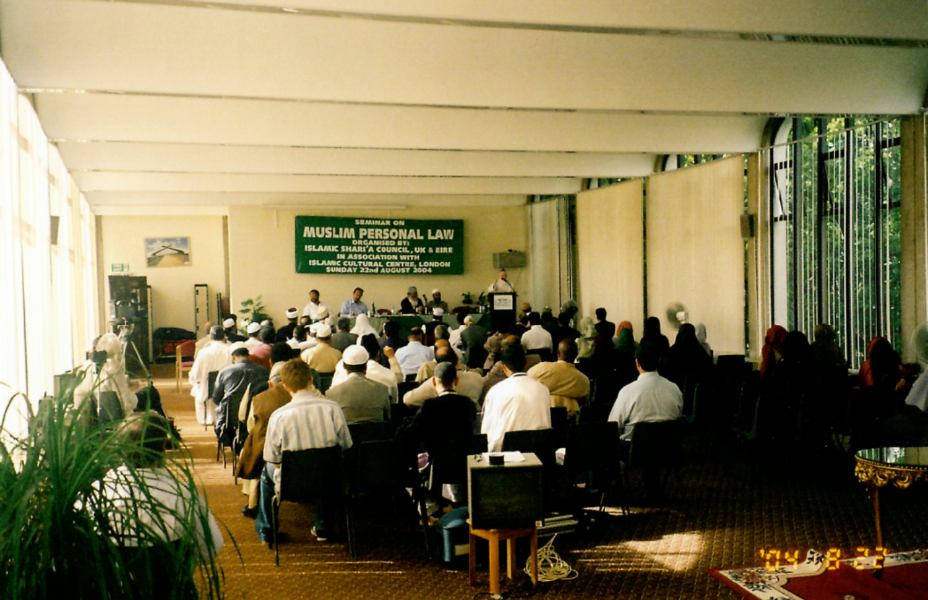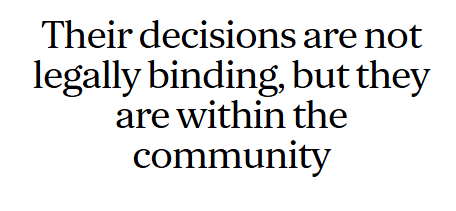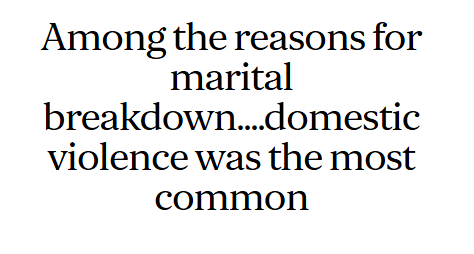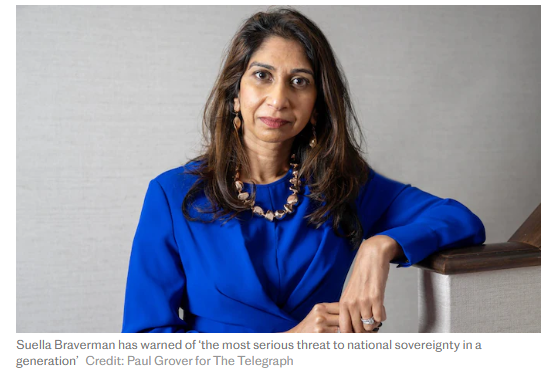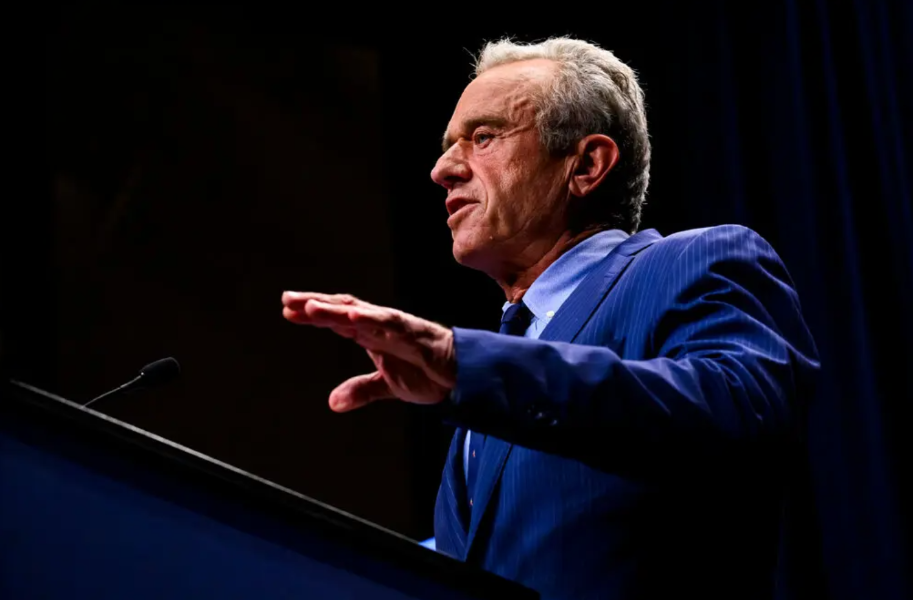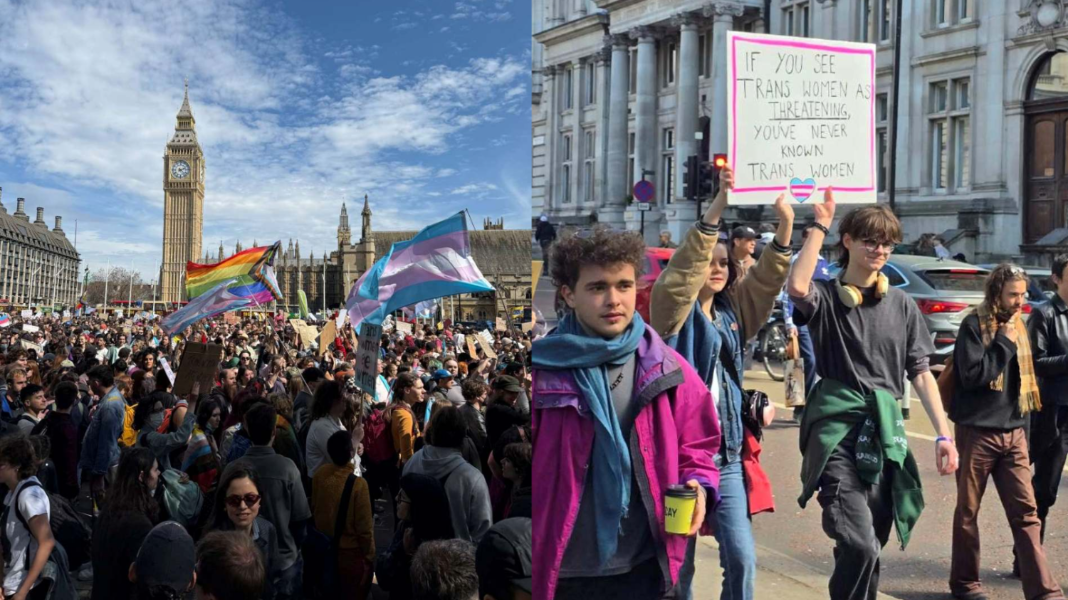-
Posts
10,734 -
Joined
-
Last visited
Content Type
Events
Forums
Downloads
Quizzes
Gallery
Blogs
Everything posted by Social Media
-
Before Harvard University emerged as a vocal opponent of the Trump administration’s demands, the prestigious institution had been quietly trying to broker a deal behind closed doors. While the university is now celebrated by some for standing firm against federal pressure, internal efforts to engage the administration were extensive—and not without controversy. Harvard’s transformation into a perceived bulwark against President Trump’s agenda began with an April 11 letter from the White House outlining demands that included reducing faculty influence and allowing government audits of university data. The Harvard Corporation, the school’s powerful and secretive governing board, declared those conditions untenable and broke off discussions. Days later, Harvard filed a lawsuit against the administration, challenging threats to cut billions in federal funding. div class="post-ads"> But that public defiance followed weeks of backchannel negotiations. Motivated in part by mounting pressure from major donors and the growing political influence of the Trump administration, Harvard had been scrambling to avoid a confrontation. The university even retained the same lawyer used by the firm Paul Weiss in its own dealings with Trump, signaling serious intent to reach a compromise. Dr. Alan Garber, Harvard’s president, sought multiple paths to the White House. According to people familiar with the matter, he contacted Jared Kushner, Trump’s son-in-law and a Harvard alumnus, to request help facilitating a meeting with the president. Kushner declined. Garber also turned to billionaire donor John Paulson, once considered for Treasury Secretary under Trump, asking for his assistance in arranging a meeting. That, too, never came to fruition. Despite Harvard’s eventual hardline stance, the internal debate was far from settled. Many prominent donors urged the university to resume talks with the White House. During a call last Thursday with Dr. Garber and Harvard Corporation’s senior fellow Penny Pritzker, several donors—including Paulson and hedge fund CEO William A. Ackman—encouraged negotiation over litigation. “Productive discussions” were needed, Paulson reportedly said. In a statement, Pritzker attempted to balance Harvard’s opposition to federal overreach with a nod to needed reform. “Harvard’s opposition to government overreach should not be seen as a lack of commitment to making the changes Harvard needs to make,” she said. “We remain firmly committed to our efforts to combat antisemitism and create a community that is strengthened by viewpoint diversity.” Some donors remained skeptical, especially in the wake of the 2023 crisis that led to the resignation of former president Claudine Gay. Wealthy contributors like Len Blavatnik, a Trump supporter, paused their giving and voiced their displeasure with the school’s response to antisemitism. While Blavatnik has since resumed some donations, his frustration reflects wider unease among Harvard’s elite backers. Former Harvard president and Treasury Secretary Larry Summers also expressed concern about the administration’s handling of campus antisemitism and the shifting national climate. Amid growing conservative criticism, Harvard made some concessions. The university announced the departure of the director of its Center for Middle Eastern Studies—a move long demanded by conservative voices who accused the center of fostering antisemitic rhetoric. Dr. Garber later acknowledged that the White House had raised valid concerns. “We agree with a lot of what is in the government’s letter,” he said during a recent donor call. Despite the university’s lawsuit and assertive public posture, his comments suggested an openness to recalibration. Harvard’s future approach remains uncertain, caught between preserving academic independence and maintaining critical federal funding. What’s clear is that before the university became a symbol of defiance, it first sought reconciliation—only to discover that the political and donor landscape left little room for quiet compromise. Adpated by ASEAN Now from New York Times 2025-04-24
-
Laser-Equipped US Spy Drone Unveiled as Game-Changer in Modern Warfare In a bold technological leap amid rising fears of a potential global conflict, a U.S. defense company has unveiled a revolutionary weapon: a drone-mounted laser capable of melting missiles mid-air. General Atomics introduced this first-of-its-kind defense system at the Sea Air Space 2025 event in National Harbor, Maryland, revealing its integration with the MQ-9B SkyGuardian — an advanced autonomous intelligence, surveillance, and reconnaissance (ISR) drone. The laser currently operates at an output of 25 kilowatts, enough to neutralize or destroy small airborne threats, particularly swarms of low-cost, disposable drones. But General Atomics claims the system’s capabilities are far from capped. The technology could be scaled up to 300 kilowatts, allowing it to take down much larger and more dangerous targets such as cruise missiles and enemy aircraft by melting through critical structural components. This new laser system is designed for both pulsed and continuous operation, and is capable of functioning in all kinds of environmental conditions, making it versatile for modern battlefield demands. During the event, General Atomics showcased video footage of the MQ-9B laser targeting and neutralizing drones modeled after Iran’s Shahed 'kamikaze' drones — the same type of weapon used in recent global conflicts — as they approached a navy vessel. Beyond its futuristic appeal, the laser represents a significant cost-saving measure for the military. Traditionally, incoming drones or missiles are intercepted with expensive and non-reusable missiles. In contrast, laser beams are immune to direct destruction and can continue delivering damage as long as the drone’s power supply holds. “A laser beam can't be directly destroyed, and it will keep inflicting damage as long as it has power,” a company representative explained. However, the primary limitation remains the power supply. While the MQ-9B SkyGuardian can stay airborne for over 40 hours, the addition of a high-energy laser could reduce its operational endurance. General Atomics has not yet disclosed the extent of this reduction, leaving questions about sustained deployment in high-intensity combat zones. Nevertheless, this development is a milestone in the U.S. military’s pursuit of airborne high-energy laser (HEL) systems. The journey has not been smooth — the U.S. Air Force’s SHiELD program, once intended to shield aircraft from missile threats, was terminated in 2024 without producing a functional prototype or conducting any test flights. Despite this, the Air Force Research Lab maintained that the initiative had achieved “significant advances in the readiness of airborne HEL technology.” It's possible these advances contributed indirectly to General Atomics’ breakthrough, though the company emphasizes its system was developed independently. The timing of this innovation couldn't be more critical. Swarming drone attacks and kamikaze-style aerial strikes, like those witnessed in Ukraine and across the Middle East, have become increasingly frequent and affordable. Between August 1, 2024, and March 1, 2025, Ukraine recorded 15,011 Shahed-type drones launched by Russia, many aimed at civilian targets, according to the Institute for Science and International Security. Traditional missile-based defense mechanisms are proving too costly and sluggish to address the growing tide of small, fast-moving aerial threats. A laser-equipped drone like the MQ-9B could offer a much-needed solution — rapid, accurate, and economically sustainable. As the global security landscape grows ever more volatile, innovations like this may very well redefine how nations defend themselves in the skies. Adpated by ASEAN Now from Daily Mail 2025-04-24
-
Trump Blames Zelensky’s Stance for Stalling Ukraine Peace Talks Former U.S. President Donald Trump has sharply criticized Ukrainian President Volodymyr Zelensky, claiming that Zelensky’s recent remarks about Crimea are damaging the prospects for peace in Ukraine. Trump’s comments came after Zelensky made it clear that Kyiv would never recognize Russia’s control over Crimea, the territory illegally annexed by Moscow in 2014. During a press conference on Tuesday, Zelensky reaffirmed his government's uncompromising position, saying, “There’s nothing to talk about here. This is against our constitution,” in reference to any potential recognition of Russian sovereignty over Crimea. The firm stance was quickly met with disapproval from Trump, who took to his social media platform Truth Social to voice his concerns. “This statement is very harmful to the peace negotiations with Russia,” Trump said, warning that such language would only prolong the ongoing bloodshed. He added, “It’s inflammatory statements like Zelensky’s that makes it so difficult to settle this war.” JD Vance: “The Ukrainians and the Russians are both gonna have to give up some of the territories they currently own…the only way for the killing to stop is that both armies put down their weapons.”
-
Tentative Signals of Peace as Putin Opens Door to Talks Amid Renewed Strikes In a rare shift in tone, Russian President Vladimir Putin has indicated a potential openness to direct negotiations with Ukrainian President Volodymyr Zelensky, marking the first such signal since the early days of the full-scale invasion that began in February 2022. Despite this overture, Russia continued a series of deadly strikes across Ukraine just hours after Putin’s remarks, casting doubt on the sincerity or viability of renewed diplomatic efforts. In an interview broadcast by Russian state television on Monday, Putin said, “We have always looked positively on any peace initiatives. We hope that representatives of the Kyiv regime will feel the same way.” His comments appeared to reference Ukraine's recent appeal for a temporary truce and its ongoing call to avoid targeting civilians. Kremlin spokesman Dmitry Peskov later clarified the Russian leader’s position, suggesting that Putin’s statement reflected a readiness to engage in direct talks with Ukraine specifically about limiting or ending strikes on civilian areas. “When the president said that it was possible to discuss the issue of not striking civilian targets, including bilaterally, the president had in mind negotiations and discussions with the Ukrainian side,” Peskov told Interfax news agency. However, any optimism generated by Putin's comments was quickly undercut by a new wave of Russian attacks across multiple Ukrainian regions on Tuesday. In the southern city of Zaporizhzhia, a missile strike on a residential apartment building left one woman dead and injured at least 20 others, including four children. Farther east, in Kharkiv, local officials reported that a daytime drone assault wounded seven people. Additional strikes were confirmed in Odesa, Sumy, Donetsk, and Kherson. A Monday night attack on a five-storey apartment block in Odesa left three people injured, according to local media. President Zelensky condemned the surge of violence, calling it “deliberate Russian terror” and asserting that it could be halted “by a single order.” In his nightly video address, Zelensky stressed that Ukraine had proposed to prolong a ceasefire observed briefly during Easter, when no Russian airstrikes were reported. “This was proven by the short-lived Easter truce on Saturday, when there were no airstrikes in Ukraine,” he wrote on Telegram. He reiterated a proposal, first introduced over the weekend, calling for a 30-day cessation of strikes using long-range drones and missiles on civilian infrastructure. “If Russia does not agree to such a step, it will be proof that it wants to continue doing only things that destroy people’s lives and continue the war,” Zelensky stated. There have been no official direct talks between Russia and Ukraine since the early weeks of the war. Whether Putin’s latest remarks represent a genuine turning point or are merely rhetorical remains to be seen. For now, the ongoing strikes continue to blur the line between diplomatic possibility and the grim realities of a war with no clear end. Adpated by ASEAN Now from BBC 2025-04-24
-

Israel Hamas War the Widening Middle East Conflict
Social Media replied to Social Media's topic in The War in Israel
Abbas Condemns Hamas in Blistering Speech, Demands Hostage Release and Gaza Control In a rare and explosive outburst, Palestinian Authority President Mahmoud Abbas harshly condemned Hamas, calling its members "sons of dogs" and demanding they release all hostages, disarm, and relinquish control of Gaza to the Palestinian Authority. The remarks came during a heated address to the Palestinian Central Council in Ramallah, marking Abbas’s strongest public denunciation of Hamas since the start of the Gaza war 18 months ago. New Topic Here. -
Abbas Condemns Hamas in Blistering Speech, Demands Hostage Release and Gaza Control In a rare and explosive outburst, Palestinian Authority President Mahmoud Abbas harshly condemned Hamas, calling its members "sons of dogs" and demanding they release all hostages, disarm, and relinquish control of Gaza to the Palestinian Authority. The remarks came during a heated address to the Palestinian Central Council in Ramallah, marking Abbas’s strongest public denunciation of Hamas since the start of the Gaza war 18 months ago. "Hamas has given the criminal occupation [Israel] excuses to commit its crimes in the Gaza Strip, the most prominent being the holding of hostages," Abbas said. “Sons of dogs, just release whoever you're holding and be done with it. Shut down their excuses and spare us.” The Palestinian president’s speech reflects growing frustration within the Palestinian Authority as the war continues to devastate Gaza and diplomatic efforts to end the conflict repeatedly falter. Abbas insisted Hamas must “hand over” responsibility for Gaza, including its arsenal, and transform itself into a political party. He argued that Hamas’s ongoing military control of the territory has prolonged the war and increased Palestinian suffering. Last week, the group rejected an Israeli proposal for a new ceasefire in Gaza, which included a demand to disarm in return for a six-week pause in hostilities and the release of 10 of the 59 remaining hostages. The PA, based in the Israeli-occupied West Bank, has consistently said it is prepared to assume leadership in Gaza once hostilities end. However, many Palestinians have criticized the PA for its perceived passivity and lack of tangible support for Gaza’s population during the conflict. Bassem Naim, a senior member of Hamas, responded with disapproval to Abbas's comments, saying the Palestinian leader had insulted "a significant and integral part of his own people." Naim's remarks were reported by AFP news agency. Meanwhile, Hamas released a video on Wednesday showing Omri Miran, a 48-year-old Israel-Hungarian hostage, held in what appeared to be an underground tunnel. The video’s release came on the eve of Holocaust Remembrance Day in Israel, further intensifying emotions surrounding the conflict. Israel has continued its offensive in Gaza, citing Hamas’s refusal to release hostages and disarm as justification. After cutting off all aid and commercial shipments into Gaza on March 2, Israel resumed military operations two weeks later, saying the pressure was intended to force Hamas’s hand. In a joint statement, the foreign ministers of the United Kingdom, France, and Germany urged Israel to end the blockade, describing the situation as "intolerable." Israel’s foreign ministry swiftly rejected those criticisms, stating, “There is no shortage of aid in Gaza,” and pointing to the 25,000 aid trucks that had entered the territory during the previous two-month ceasefire. “Israel is fighting Hamas, which steals humanitarian aid, uses it to rebuild its war machine, and hides behind civilians,” the statement read. “Hamas started this war, and Hamas is responsible for its continuation and for the suffering of both Palestinians and Israelis. The war can end tomorrow if the hostages are released and Hamas lays down its weapons.” As international pressure mounts and divisions among Palestinian leadership grow more public, the path to ending the Gaza war remains fraught with challenges, mistrust, and high stakes for all involved. Adpated by ASEAN Now from BBC | AFP 2025-04-24
-
Boise to Host “Heterosexual Awesomeness Fest” During Pride Month, Stirring National Debate As LGBTQ+ Pride Month approaches, a new and controversial event is drawing national attention. A group called Hetero Awesome has announced plans to host the “Heterosexual Awesomeness Fest” in downtown Boise, Idaho, on June 20 and 21, 2025. The timing—during a month traditionally dedicated to honoring LGBTQ+ history and rights—has ignited discussion across the country. According to a press release, the two-day festival will include “live music, food trucks, kid-friendly chaos, and hard-hitting talks.” On its website, the group emphasizes a strong ideological stance, stating, “This ain't your limp-wristed woke fest; it's a full-on celebration of family values with guts.” Although few logistical details or partnerships have been confirmed, organizers appear committed to making a cultural and political statement during a period that has come to symbolize the fight for LGBTQ+ rights. The choice to hold the event in June is significant. Pride Month honors the Stonewall Inn riots of 1969, a pivotal moment in the LGBTQ+ rights movement. It is a time when parades, festivals, and events are held nationwide to celebrate identity and push back against discrimination. GLAAD, an LGBTQ+ media advocacy organization, recently reported that in 2024 there were an average of 2.5 anti-LGBTQ+ incidents per day, a rise attributed to the wave of new legislation targeting LGBTQ+ rights across several states. Supporters of Pride Month argue that straight pride events are unnecessary, since heterosexual individuals do not face systemic discrimination based on their sexual orientation. “Pride exists because LGBTQ+ people have had to fight to be seen, heard, and treated equally,” said one advocate responding to the announcement online. “This sort of event completely misses the point.” Critics of Pride, however, argue that the celebrations are exclusionary or politically driven. In recent years, companies like Bud Light and Target have faced backlash from conservative groups for participating in Pride Month campaigns. The announcement of a festival specifically for heterosexual pride echoes similar controversies seen in other parts of the country, though such events have often met with both protests and limited turnout. Hetero Awesome describes its mission as aiming to “expose the anti-family agendas tearing at society’s core, arm the masses with clarity, and rally the brave to stand tall. No grift, no fancy cars, no padded pockets—just pure, unfiltered truth.” At present, it is unclear whether counter-protests or demonstrations are being planned in response to the Boise event. Notably, Boise’s official Pride festival is not held in June but rather in September, meaning the Heterosexual Awesomeness Fest will not overlap with it directly. Still, the proximity to national Pride Month lends the event an undeniably provocative edge, one that is likely to continue fueling debate about free speech, inclusion, and the current cultural divide in the United States. As Pride Month kicks off on June 1, 2025, the spotlight on LGBTQ+ rights—and the challenges facing the community—will remain sharp. Whether the Hetero Awesome event will gain traction or fizzle out remains to be seen, but the conversations it has sparked are unlikely to fade anytime soon. Adpated by ASEAN Now from Newsweek 2025-04-23
-
Joe Biden has found himself at the center of controversy once again, this time over an Easter family photo that many online have accused of being digitally manipulated. The image, shared on social media, shows the former president surrounded by his wife, Jill Biden, and several family members, all gathered to celebrate the holiday. However, it wasn’t long before eagle-eyed users began questioning whether Biden was actually present when the photo was taken. One of the most pointed criticisms stemmed from how out of place Biden appeared compared to the rest of his casually dressed family. In the image, he is seen wearing a full suit, complete with an American flag pin, which led to widespread speculation. “This looks Photoshopped,” commented Brigitte Gabriel, a New York Times best-selling author, on X (formerly Twitter). Her post sparked a flurry of responses, many of which echoed the same sentiment. Critics zoomed in on what they claimed were inconsistencies within the photo, particularly around Biden’s physical placement and interactions—or lack thereof—with the people next to him. One user noted that Biden’s hand appeared to be suspended in midair behind a grandchild. “It’s totally Photoshopped. Look at his hand, it’s in a low wave position, the hand is not resting on the shoulder of the grandchild, nor are the fingers resting on it. This is fake!” they wrote. Others honed in on the arrangement of the people in the photo, especially the positioning on the steps where the family sat or stood. “Fake much like most of his administration,” one user claimed. “The woman in the yellow shirt you can see her knees. She is sitting on the top step. Same with the guy on the left in the grey sweater with his elbow on his knee. Also top step. No way Joe was in this photo sitting or standing.” While the authenticity of the photo remains officially unaddressed, the timing of the controversy has only added fuel to broader concerns about the 82-year-old former president’s health. These doubts are expected to deepen with the upcoming release of a book titled Original Sin: President Biden’s Decline, Its Cover-up, and His Disastrous Choice to Run Again. The book promises to delve into what it describes as an intentional effort to mask Biden’s health challenges during the 2024 election campaign, including the decision that ultimately led him to withdraw from the race. The Easter photo may be just one image, but for many critics, it symbolizes larger questions about transparency, digital manipulation, and the former president’s fitness—both physical and political—as Democrats and voters alike continue to reflect on the turbulent events of the last election cycle. Adpated by ASEAN Now from The Telegraph | X 2025-04-23
-
London’s Hidden Courts: The Rise of Unregulated Sharia Councils and the Women Caught in Between In a quiet corner of Leyton, East London, nestled among houses of worship representing multiple faiths, the Islamic Sharia Council operates out of a modest terraced building. This unassuming site, marked in bold white letters, is one of several sharia councils quietly shaping the personal lives of Muslim women across the capital. Though established to provide guidance and resolution in accordance with Islamic law, these councils have increasingly come under fire for perpetuating misogyny, operating in secrecy, and existing largely outside any formal legal framework. The Islamic Sharia Council was founded decades ago and now sits in what was once the end of a residential row. Inside, Khola Hasan, the founder’s daughter and an Islamic scholar with two academic degrees, welcomes visitors. Standing before shelves filled with Islamic legal texts, she gestures toward an outdated yet still-used poster showing a complex Islamic divorce flowchart. “It’s been there for many years,” she says with a laugh. “We keep meaning to update it. But it is still largely accurate.” While Hasan’s council is one of a few officially known councils in London, estimates of the total number operating in the UK vary wildly—from 30 to over 85. Many are believed to be informal or completely unregistered, often functioning in mosque back rooms. These bodies have gained the controversial reputation of turning Britain into what some call “the sharia court capital of the West.” These councils are often portrayed as both saviors and oppressors. On one hand, they are seen as a lifeline for women trapped in religious marriages, unable to obtain a divorce without male consent. On the other, critics argue they enforce deeply patriarchal norms, offering few protections for women and sometimes leaving them destitute. Faria, a woman from East London, found herself in marital limbo for over seven years after her husband deserted her. They had married through a nikah, an Islamic marriage contract not recognized under UK civil law. Without a civil marriage certificate, she had no legal recourse to demand a divorce. In Islam, a man can unilaterally divorce his wife through a process called talaq, simply by declaring it three times. In one case, a man even attempted to divorce his wife by text message. Meanwhile, a woman like Faria must either obtain her husband’s consent or convince a sharia council judge that the husband has failed in his duties. Hasan, who is the only female Islamic “judge” in London—though she prefers the term “Islamic scholar”—works to resolve such cases through what she calls “meetings” rather than hearings. “No one is on trial,” she explains. “Asking for divorce is often a cry for help.” Many of the cases involve complaints about a partner’s “un-Islamic lifestyle,” though the council increasingly fields issues beyond divorce, such as inheritance disputes or religious obligations. The Islamic Sharia Council has even set up a helpline to respond to growing demand. The lack of regulation remains a major concern. Researcher Uddin, who has studied sharia councils extensively, believes the real number of functioning councils is much lower than official estimates. “Quite a lot of them are, as imams explained to me, just a couple of people working in the back end of a mosque or something like that.” Without oversight, these groups can interpret Islamic law as they see fit, often to the detriment of women’s rights. Among 27 British Bangladeshi women interviewed by Uddin, many stayed in abusive marriages due to fear of social stigma, loss of housing, or financial insecurity. Rupa, one such woman, fled to a refuge after enduring domestic violence, only to be shunned by her family. “She’s not allowed in my house,” her father told her. Friends and relatives urged her to return to her husband, warning what others might say if she didn’t. Despite the clear dangers, some women see unregistered nikah marriages as offering an easier path out. One sharia judge told Uddin, “A couple were married for four months then the woman applied for an Islamic divorce. I asked why she did not have a civil marriage. The woman said thank God she didn’t otherwise she would have had to wait a year to divorce.” For those in brief unions without children or financial entanglements, the speed is appealing. But the cost can be devastating—no legal protection, no financial support, and no guaranteed rights. As these shadow councils expand across the capital, the debate continues: are they offering help to vulnerable women, or quietly reinforcing a system that leaves many without recourse, recognition, or rights? Adpated by ASEAN Now from The Standard 2025-04-23 Related Topics: Britain’s Sharia Courts and the Challenge of Religious Freedom
-
UK Faces Countdown to Reject WHO’s Expanding Pandemic Powers Britain is facing a crucial decision over whether to accept or reject sweeping new amendments to the World Health Organisation’s international health regulations (IHRs), with a fast-approaching deadline of July 19 prompting a chorus of concern from lawmakers across the political spectrum. The proposed changes, developed in response to the Covid-19 pandemic, are intended to enhance the WHO’s capacity to coordinate global responses to future health crises. But critics argue they pose a fundamental threat to national sovereignty. A group of 14 prominent MPs and peers has written to the Foreign Office, calling on the Government to exercise the UK's right to opt out of the changes before the deadline. Among the signatories are Conservative MPs Danny Kruger, Sir Iain Duncan Smith, Esther McVey, and Jack Rankin, Labour’s Graham Stringer, the DUP’s Sammy Wilson, former Reform UK MP Rupert Lowe, and Tory peer Lord Frost, who served as chief Brexit negotiator. The letter warns it would be “premature and pre-emptive” for Britain to accept new international health protocols before the findings of the ongoing Covid Inquiry are fully known. The proposed amendments to the IHRs would compel member states to “support WHO-coordinated response activities,” a phrase that opponents interpret as potentially requiring nations to comply with WHO-recommended lockdowns and other emergency measures. A government spokesperson acknowledged to The Telegraph that “no decision” had yet been made on which amendments would serve the UK’s national interest. Former home secretary Suella Braverman issued one of the strongest rebukes of the proposed changes, describing them as “the most serious threat to national sovereignty in a generation.” In an opinion piece for The Telegraph, she warned that the public would see the move as a direct affront to democracy. “What the British public sees – what they intuit – is not just bureaucratic overreach but a creeping usurpation of their democratic rights,” she wrote. “They voted to leave the European Union precisely because they were tired of decisions being made by people they could not name and could not remove. The WHO, as it currently stands, is another iteration of the same problem.” A spokesman for the WHO responded to the criticisms by stating unequivocally, “The WHO does not have the right or ability to take any decision concerning health within a sovereign state.” He explained that the organisation’s recommendations are based on expert advice and information provided by countries, and are aimed at preventing the spread of disease without interfering with international travel or trade. “Such authority will and always remain with the countries themselves,” he added. Despite those assurances, concerns persist among UK lawmakers who fear the WHO’s influence may extend far beyond advisory functions. Some suggest the amendment process itself may be flawed, raising “serious doubts” about its legality and even suggesting it could “amount to a breach of international law.” Suella Braverman elaborated further on the source of her alarm, writing that while the WHO was once a noble post-war institution tasked with advancing global health, it has devolved into a “ghost ship – rudderless, bloated and dangerously compromised.” She accused the WHO of being “captured – politically, ideologically, and financially,” blaming undue influence from the Chinese Communist Party and powerful pharmaceutical interests. “The rot, though long in the making, was laid bare for all to see during the Covid pandemic,” she wrote, pointing to the WHO’s early repetition of China’s claims that there was “no evidence of human-to-human transmission” and its delayed investigation into the origins of the virus. She cited Dr. Peter Ben Embarek, who led the WHO’s Covid origins probe and later revealed Chinese officials pressured his team to avoid the lab leak theory. “This is not science – it is theatre,” she wrote. The United States has already withdrawn from the IHR process, having exited the WHO during the early days of Donald Trump’s second administration. Whether the UK will follow suit or entrench itself deeper in the WHO’s evolving framework remains to be seen — but the clock is ticking. Adpated by ASEAN Now from The Telegraph 2025-04-23
-
Border Shut Tight: Migrants Turn Back as Trump’s Immigration Crackdown Takes Hold In Ciudad Juárez, the signs of a once-active migration route have all but vanished. Encampments that once lined the Mexican border across from El Paso, Texas, are now empty. Migrants are no longer gathering in large numbers or attempting to cross the harsh desert terrain under cover of night. “The door is closed,” said Yorman Briceño, a Venezuelan migrant who had been staying in a church-run shelter while awaiting a long-delayed asylum appointment in the U.S. His hopes were dashed when President Donald Trump canceled the program just days after taking office. “There’s no more hope for entering legally as long as Donald Trump is there, and anyone telling you otherwise is lying,” he added. The Trump administration’s promise to aggressively secure the border appears to be taking effect. Illegal crossings that had surged under President Biden have dropped dramatically, continuing a downward trend that began in the months leading up to the election. Migrant encounters have since declined to levels not seen since the 1960s. Though mass deportations have yet to materialize, the border itself has become a political and logistical success for the Trump administration. One of the most striking changes is the deterrent effect of deportations to a high-security prison in El Salvador, a move that has stoked fear among migrants. Even with immigration remaining a contentious political issue, a recent Wall Street Journal poll found that 53% of voters approve of Trump’s handling of border security, compared to 43% who disapprove. At a Border Security Expo in Phoenix, officials hailed recent data as proof of success. Tom Homan, the administration’s border czar, pointed to a figure of just 41 “gotaways” in a single day—a dramatic drop from past numbers. “Forty-one is pretty good,” he said. “But we’ll get to zero. And when we get to zero, we’ll have operational control of the U.S. border for the first time in this nation’s history.” The steep decline in illegal crossings began in Biden’s final months, when arrests fell from a peak of 250,000 per month to around 48,000 in December. That number has since plunged to just over 7,000 in March. Experts note that shifts in migration typically follow policy changes, but the current reversal has been more dramatic than usual. Factors contributing to the decline include Biden-era agreements with Mexico and Panama to strengthen regional enforcement, as well as the dismantling of the CBP One app that migrants had used to seek asylum appointments. Mexican authorities have stepped up enforcement, with police in Chihuahua—home to Ciudad Juárez—increasing patrols and plugging breaches in the border wall. Inspector Eduardo Esparza, who leads these patrols, pointed out homes known to house smugglers and warned that economic downturns could drive locals toward illegal trafficking. “We’ve noticed a big reduction in the flows,” he said. U.S. immigration patterns may now be reverting to what they were decades ago, when Mexican and Guatemalan workers crossed illegally to seek jobs without requesting asylum. Trump’s administration has not yet begun large-scale deportations, but images of imprisoned migrants and the administration’s tough rhetoric are sending a strong message. “We’ve got to find them,” Homan said. “We’ve got to step our game up.” In anticipation of Trump’s promised deportations, the Mexican government has erected nine tent cities along the border. One of them, built on the site where Pope Francis once spoke in Ciudad Juárez, remains largely empty. “Deportations have been much lower than what we were expecting, even below the rates we saw under President Biden,” said Ana Laura Rodela, a shelter manager. Among the few deportees is Leonel Ramos, a 21-year-old who crossed into the U.S. with a friend only to be arrested minutes later. “For now, I don’t want to try crossing again,” he said. His story reflects a broader reality: the border, once seen as a narrow but possible gateway, is now a closed door for many. Adpated by ASEAN Now from The Washington Post 2025-04-23
- 75 replies
-
- 11
-

-

-

-

-

-
U.S. Airstrikes in Yemen Kill 12, Wound Dozens More, Say Houthi Rebels Twelve people were killed and 30 others injured in Yemen’s capital, Sanaa, following a new round of U.S. airstrikes, according to claims by the Houthi rebel group early Monday. The strikes, part of a growing American military campaign in the region, reportedly targeted the Farwa neighborhood market in the city’s Shuub district—a location previously struck by U.S. forces. The U.S. Central Command has not yet issued a statement confirming or commenting on the latest wave of attacks. The Monday strikes are the latest in what appears to be a steady intensification of U.S. military activity against the Houthis in Yemen. While exact details about all the impacted areas remain unclear, the rebels report that airstrikes were also conducted in other parts of the country overnight. These new attacks follow a deadly assault just last week on the Ras Isa fuel port, which killed at least 74 people and wounded another 171, according to Houthi officials. That strike, one of the deadliest reported in recent months, drew condemnation from local and international humanitarian organizations amid fears of rising civilian casualties. The targeting of markets and infrastructure has deepened concerns among aid groups and observers about the humanitarian toll of the ongoing military operations. While the U.S. has framed its involvement as a necessary response to regional threats, the mounting death toll raises questions about proportionality and the protection of civilians in conflict zones. The airstrikes come against the backdrop of wider tensions in the region, with the U.S. seeking to exert pressure on the Houthis, who have controlled Sanaa since 2014 and are aligned with Iran. The group has long been a central player in Yemen’s protracted civil war, and U.S. operations have increasingly focused on degrading their capabilities amid rising instability. While American officials have in the past stated that military actions are intended to deter Houthi attacks on international shipping routes and protect allies in the Gulf, critics argue that the escalating violence risks inflaming an already dire humanitarian crisis. Yemen remains one of the world’s most vulnerable countries, with millions dependent on humanitarian aid and a fragile peace process at constant risk of collapse. With the U.S. yet to publicly acknowledge the latest series of strikes, the full scope and intended targets remain unverified. However, the Houthi reports point to an intensifying campaign that continues to take a heavy toll on civilians and infrastructure across Yemen. Adpated by ASEAN Now from The Independent 2025-04-23 Related Topics: U.S. Destroys Houthi Fuel Terminal in Yemen 70 Killed according to Houthi officials Trump Warns Israel Would Lead Strike if Iran Refuses to Abandon Nuclear Ambitions Iran Withdraws Support from Houthis Amid Intensified US Airstrikes US deploys “overwhelming lethal force” against Houthis in Yemen
-
A Southern California mayor is facing widespread criticism after expressing a desire to “purge” the homeless population of his city by giving them “all the fentanyl they want.” Lancaster Mayor (Republican) Rex Parris made the shocking remarks during a city council meeting on February 25 and later reiterated his stance in a televised interview. Parris’s comments were sparked during a discussion on the city’s homelessness policies, which include relocating unhoused individuals to an abandoned golf course near a residential area. As a concerned resident raised objections, Parris interrupted her, saying, “What I want to do is give them free fentanyl. I mean, that’s what I want to do. I want to give them all the fentanyl they want.” The woman, clearly disturbed by the statement, told the mayor that his remarks were unkind. However, Parris, who has served as mayor since 2008, showed no remorse. In a follow-up interview with FOX LA, he clarified that his comments were directed at what he called the “criminal element” within the homeless population—individuals he claims were released from prison and now make up a significant portion of those living on the streets. “I made it very clear I was talking about the criminal element that were let out of the prisons that have now become 40 to 45% of what’s referred to as the homeless population,” Parris said. “They are responsible for most of our robberies, most of our rapes, and at least half of our murders.” He did not provide any data to support these allegations. When asked about the severity of his words, Parris brushed them off, saying he didn’t believe anyone would take them literally, especially given how readily available fentanyl is on the streets already. Still, he doubled down on his views, suggesting that the federal government should take more aggressive action against the homeless. “Quite frankly, I wish that the president would give us a purge. Because we do need to purge these people,” Parris declared. “Now, is it harsh? Of course, it is harsh. But it’s my obligation as the mayor of the city of Lancaster to protect the hardworking families that live there, and I am no longer able to do it … It’s an untenable situation and I’m open to any solution … I want these people out of our city.” Parris has previously stirred controversy, including his 2018 call to ban neckties in the workplace for health reasons. Now, his most recent comments have fueled a recall effort led by critics who view his rhetoric as dangerous and inhumane. Among those condemning him is Johnathon Ervin, a Democrat who ran against Parris in the last mayoral election. “Anyone willing to give homeless people all the fentanyl they want, or to suggest that President Trump should allow a purge of the homeless population, has no business in public office,” Ervin told the Los Angeles Times. Despite the outrage, the online petition to recall Parris has only reached 6% of its 20,000-signature goal as of Sunday night. Parris's current term is set to expire in April 2028. He has yet to publicly respond to the backlash beyond his initial interviews. Adpated by ASEAN Now from New York Post 2025-04-23
-
Kennedy Moves to Eliminate Petroleum-Based Food Dyes from American Diet In a bold move to reshape the American food landscape, Health Secretary Robert F. Kennedy Jr. is spearheading a plan to eliminate eight commonly used petroleum-based food dyes from grocery store shelves by the end of 2026. The directive, set to be detailed during an event in Washington on Tuesday, marks Kennedy’s first major push to overhaul the ingredients used in the nation’s food supply. The targeted dyes, found in hundreds of thousands of food items such as cereals and sports drinks, have long been the subject of scrutiny from health advocates. Critics point to research linking synthetic food dyes to hyperactivity and neurobehavioral issues in children, though the scientific consensus remains debated. Despite this, Kennedy is moving forward with a campaign that urges food manufacturers to voluntarily transition away from artificial coloring. While the Department of Health and Human Services has not yet outlined a formal regulatory path to enforce the changes, the message from Kennedy is clear: the era of petroleum-based food dyes is ending. His department expects the industry to comply by 2026, signaling a shift that could transform the visual appeal and ingredient profiles of many household food staples. The Food and Drug Administration, which oversees the majority of the country’s food supply, previously banned Red Dye No. 3 following studies that linked it to cancer in lab animals. That decision, made just before Donald Trump’s presidency began, aligned with a 2023 California law banning the same dye. The eight dyes now under scrutiny are still widely used in the United States, but food manufacturers already take a different approach in other parts of the world. In European and Canadian markets, where products containing such dyes require warning labels, companies have long since adopted natural alternatives. Kennedy has pointed to these international examples as evidence that a transition is both feasible and overdue. “The Canadian version of Froot Loops gets its bright colors from blueberries and carrots instead of Red No. 40, Yellow No. 5 and Blue No. 1,” he noted, using the cereal as an example of how the U.S. market lags behind in adopting safer and more natural ingredients. His commitment to the issue was made evident in a March meeting in Washington, where he met with senior executives from food industry giants including PepsiCo, W.K. Kellogg, and General Mills. At that meeting, Kennedy made it clear that eliminating synthetic food dyes was not only a top priority but also the beginning of broader changes to come. However, not everyone in the food industry is aligned with Kennedy’s vision. Sarah Gallo, senior vice president of product policy at the Consumer Brands Association, warned that the move could have unintended consequences. “Policies based on ideology and not science could undermine trust in food safety and cause consumers, particularly those in vulnerable populations, to lose access to safe, nutrient-dense foods,” she said. Despite such concerns, Kennedy is expected to announce the approval of additional natural color alternatives during Tuesday’s event, offering companies more tools to comply with the upcoming changes. Whether the industry embraces the shift willingly or resists it remains to be seen, but Kennedy's initiative signals a clear direction: the U.S. food system is being asked to trade artificial vibrancy for natural integrity. Adpated by ASEAN Now from New York Times 2025-04-22
-
Elon Musk to Scale Back Role in DOGE Amid Tesla Backlash Elon Musk announced on Tuesday that he plans to reduce his involvement in the Department of Government Efficiency (DOGE), following growing criticism that his close ties to former President Donald Trump have negatively impacted Tesla. Musk, the CEO of Tesla, has long been an outspoken supporter of Trump and a leading figure in the administration's efforts to streamline government operations through DOGE. However, he acknowledged during Tesla’s latest earnings call that his association with Trump’s policies has created challenges for the company. “My time allocation to DOGE will drop significantly,” Musk stated, indicating that the shift would likely begin in May. He noted that his contributions to the initiative are now “mostly done.” Still, he intends to maintain some involvement, citing a continued responsibility to safeguard the progress made in reducing waste and fraud within government systems. “I'll have to continue doing it for I think the remainder of the President's term just to make sure the waste and fraud that we stopped does not come roaring back, which it will do if it has the chance,” Musk explained. Despite stepping back from full-time involvement, he said he would still dedicate limited time to government matters. “I think I'll continue to spend a day or two per week on government matters for as long as the President would like me to do so and as long as it would be useful,” he added. Musk acknowledged that his alignment with Trump has brought some "blowback" to Tesla, alluding to reputational issues and public protests tied to his political stance. “There’s been a few bumps in the road,” he said, but he remained confident about Tesla’s long-term prospects. “I encourage people to look beyond the bumps and potholes of the road immediately ahead of us. Lift your gaze to the bright shining citadel on the hill — I don't know, some Reagan-esque imagery — and that's where we're headed.” In a more controversial remark, Musk claimed without offering evidence that some of the protests against Tesla have been fueled by illegitimate financial incentives. “That is the real reason for the protests,” he alleged. “Tesla protesters are receiving fraudulent money from the government.” The decision to step back comes at a pivotal time for Musk, as Tesla navigates market pressures and a divided public perception, amplified by his political engagement. While he may be shifting his focus away from Washington, the influence of his decisions — both corporate and political — continues to draw national attention. Adpated by ASEAN Now from AXIOS 2025-04-23
-
Markets Surge on Hopes of U.S.-China Trade Breakthrough U.S. stock markets surged Tuesday, closing with robust gains as fresh signals from the White House hinted at a possible thaw in the ongoing trade war with China. Investors responded swiftly to remarks suggesting the months-long standoff between the two economic giants may soon ease, helping markets rebound from recent volatility. Momentum began early in the trading session, but a notable upswing took hold in the afternoon following reports that Treasury Secretary Scott Bessent, speaking at a private investor meeting in Washington, predicted a "de-escalation" in trade tensions with China. “No one thinks the current status quo is sustainable,” Bessent reportedly told attendees at the JPMorgan Chase-hosted event, according to multiple media outlets. While the White House has not officially confirmed the details of Bessent's remarks, press secretary Karoline Leavitt offered a cautiously optimistic tone during a briefing later in the day. “The president and the administration are setting the stage for a deal with China,” Leavitt said. “So we feel everyone involved wants to see a trade deal happen, and the ball is moving in the right direction.” She declined to elaborate directly on Bessent’s comments but confirmed that the administration believes it is “doing very well in respect to a potential trade deal with China.” The upbeat messaging marked a stark contrast from Monday’s gloomy trading session, when markets plunged after President Trump renewed his criticisms of the Federal Reserve. All three major U.S. stock indexes fell by approximately 2.5 percent, reflecting growing investor anxiety over interest rates, trade uncertainty, and weakening global growth. The selloffs also extended to U.S. bonds and the dollar, adding to the financial turbulence. Tuesday's rally helped the markets recoup much of those losses. The Dow Jones Industrial Average leapt by 1,016 points, a gain of 2.66 percent. The NASDAQ, driven by strength in the technology sector, rose 429 points, or 2.71 percent. The S&P 500 also rebounded, climbing 2.5 percent. Adding to the day’s more reassuring tone, President Trump confirmed he has no intention of removing Federal Reserve Chair Jerome Powell, despite ongoing disagreements over monetary policy. That statement, although brief, likely added another layer of stability to investor sentiment, helping temper fears of further political interference with the central bank. The swift turnaround in market performance underscores just how sensitive investors remain to developments in U.S.-China trade talks. With the administration now signaling progress, even subtle shifts in rhetoric appear capable of driving significant market movement. For now, Wall Street is betting on diplomacy prevailing over escalation. Adpated by ASEAN Now from The Hill 2025-04-23
-
@Emdog your post was removed. 17. ASEAN NOW news team collects news articles from various recognised and reputable news sources. The articles may be consolidated from different sources and rewritten with AI assistance These news items are shared in our forums for members to stay informed and engaged. Our dedicated news team puts in the effort to deliver quality content, and we ask for your respect in return. Any disrespectful comments about our news articles or the content itself, such as calling it "clickbait" or “slow news day”, and criticising grammatical errors, will not be tolerated and appropriate action will be taken. Please note that republished articles may contain errors or opinions that do not reflect the views of ASEAN NOW. If you'd like to help us, and you see an error with an article, then please use the report function so that we can attend to it promptly.
-
@Cameroni Please do not post inflammatory non substaniated claims and homophobic slurs. 15. You will not discriminate or post slurs, degrading or overly negative comments on the basis of race, gender, age, religion, ethnicity, nationality, disability, medical history, marriage, civil partnership, pregnancy, maternity, paternity, gender identity, sexual orientation or any other irrelevant factor.
-
Supreme Court Ruling Sparks Wave of Threats and Backlash Amid Gender Rights Debate The landmark Supreme Court decision affirming that single-sex protections should apply only to those born female has ignited a firestorm of public reaction, including a torrent of death threats and vitriolic abuse directed at the campaigners who led the charge. The ruling, delivered on Wednesday by five Supreme Court judges, sided with the campaign group For Women Scotland (FWS), whose members have long argued that the legal definition of “woman” should be based on biological sex rather than gender identity. The ruling, which concludes a lengthy legal battle, could reshape how sex-based rights and transgender inclusion are navigated in policy and law across the UK. However, in the wake of their courtroom victory, the women behind FWS are facing fierce backlash. According to the three campaigners leading FWS, the group’s email inbox has been flooded with disturbing and hateful messages since the decision was made public. One particularly chilling message received just hours after the judgment read, “You’re a group of disgusting murderers and deserve death. God will rip you from your family one day and nobody will mourn you.” Another message said, “Your inhumanity makes me vomit. You stupid women should feel deeply ashamed for being so stupid.” Susan Smith, one of the FWS campaigners, reflected on the harassment, saying, “It would never occur to us to send messages like this or to call our opponents ugly. But we get this every day.” Her fellow campaigner, Marion Calder, added, “Sadly, it is almost inevitable that women who speak up for our rights will be threatened by angry men. It’s a tale as old as the hills. Ironically, this lot think they are on the side of ‘progress’, ‘kindness’ and ‘human rights’, but they have no issue using the most dehumanising, sexist abuse or threatening the most extreme violence. Thankfully, the nastiness is dwarfed by messages of love and support, many of which have brought us to tears.” On Saturday, the public backlash culminated in mass protests across central London. Thousands gathered near the Supreme Court in Parliament Square to voice their opposition to the judgment, waving trans Pride flags and holding signs condemning the government and key political figures, including Health Secretary Wes Streeting. Statues such as those of Winston Churchill and suffragist Millicent Fawcett were adorned or defaced with slogans and Pride imagery. The Metropolitan Police confirmed they were investigating acts of vandalism in the area. Demonstrators later broke into an impromptu march, disrupting traffic and chanting slogans such as “Wes Streeting, blood on your hands” and “F*** the judges, burn the courts.” Others could be heard chanting, “Trans liberation, no assimilation.” In the aftermath of the ruling, government departments are rushing to assess the broader implications for public policy, particularly in areas like parental leave, single-sex services, and workplace inclusion. The case specifically addressed whether trans women could hold seats on boards legally reserved for women. The Chartered Institute of Personnel and Development, representing 160,000 HR professionals across the country, has advised employers to audit their internal policies to ensure compliance with the newly clarified legal definition of sex. Corporate leaders are also beginning to reassess how this ruling will affect existing diversity frameworks. Alex Mahon, CEO of Channel 4, remarked, “The impact is pretty unclear at this time for companies. We will all need to take legal advice and that will take time.” As the legal dust settles, the societal conversation around gender, sex, and rights in the UK continues to intensify, with both sides of the debate grappling with the far-reaching consequences of the court’s decision. Adpated by ASEAN Now from The Times 2025-04-22 Related Topics: Strip Search Policy for Trans Women Shifts to male Police Following Supreme Court Ruling UK Supreme Court Rules ‘Woman’ Means Biological Female, in Landmark Decision
-
Online Sales of ‘Refugee Boats’ by Chinese Firms Raise Alarm Over Human Smuggling A growing number of Chinese companies are advertising and selling inflatable boats explicitly marketed for transporting refugees, raising serious concerns among international authorities about the role of online marketplaces in aiding people smugglers. These boats, promoted with phrases like “refugee boats” and “immigrant dinghies,” are being openly listed on Alibaba, one of China’s largest e-commerce platforms, with sellers offering fast and direct shipping to European destinations commonly associated with migrant routes. Over a three-month investigation, The Telegraph found that at least seven suppliers continued to promote these products online without restriction. Despite including search-friendly keywords such as Italy, Germany, Turkey, Morocco, and Libya—well-known transit points for migrants—none of the listings were removed. One seller, Weihai Yamar Outdoors Product Co, even told an undercover reporter that they had many customers in Europe for “refugee boats” and assured them the vessels were “safe for use at sea.” When pressed further, a salesman from Hubei Jinlong New Materials, which lists Europe as its primary market for “refugee inflatable rib boats,” explained that even larger, custom-sized boats could be ordered. After being asked if seven meters was the largest available, the seller responded, “7m is not the biggest option, custom size is available.” Boats are offered at a range of price points—from as low as $200 (£151) to more than $2,000 (£1,508)—with some models claiming to hold up to 30 people, despite their typical safe capacity being far lower. Neville Blackwood, a former UK police officer and expert in international law enforcement, was blunt in his assessment. “Nobody seems to be in fear of arrest or prosecution. It’s business as usual on the Alibaba site,” he said. “These are flimsy boats and engines that aren’t appropriate to set sail and, potentially, people could lose their lives. To advertise them is just wrong; it’s putting people’s lives at risk.” The UK government is reportedly in discussions with Chinese authorities to restrict these sales. Last year, the National Crime Agency (NCA) began talks with Beijing to limit access to outboard motors commonly used in illegal crossings. More recently, Chinese officials attended a border security summit hosted in London, signaling at least some willingness to engage on the issue. Still, Blackwood is skeptical about progress. “There will be a lot of ‘yes, we hear what you say,’ but nothing happens, and it gets more frustrating,” he said, noting that even with cooperation, investigations and enforcement could take years. The danger posed by these boats is not theoretical. In 2024, more than 37,000 people crossed the English Channel in around 690 boats—a number nearly identical to the vessel count in 2020, but with four times as many people crammed on board. Authorities have documented up to 90 individuals stuffed into a single inflatable meant for far fewer. That overcrowding, combined with the channel’s heavy shipping traffic and unstable craft, has led to tragedy. The United Nations migration agency reported at least 80 deaths in 2024 alone, including a four-month-old baby, making it the deadliest year yet for Channel crossings. Despite this, Chinese suppliers continue selling without hesitation. A Qingdao Rongsheng Sports Goods advert marketed a 10-metre “immigrant boat” with shipping costs as low as $20 (£15) for first-time buyers. Engines can be purchased for as little as $300 (£226), often from the same companies selling the rafts. A Home Office spokesperson responded to the findings, stating: “We welcome this research from The Telegraph which highlights the complexity of disrupting global supply chains used by organised criminal networks. We have a strong intelligence picture and are aware of these supply chains.” The spokesperson added that more than 600 boats and engines have been seized in the past 18 months and over 18,000 online adverts linked to illegal immigration activity have been taken down. Still, the core challenge remains unresolved. As long as these vessels are so easily acquired online and promoted with impunity, the risk to desperate migrants—and the task of stopping smugglers—will persist. Adpated by ASEAN Now from The Telegraph 2025-04-22
-
A New Generation Pushes for Power Within the Democratic Party Calls for a generational shift within the Democratic Party are growing louder as the party braces for the 2026 midterms. With mounting dissatisfaction among younger voters and activists, new faces are emerging to challenge longtime incumbents, seeking not just to win elections but to redefine the party’s direction. A major development came this week when the Leaders We Deserve PAC, led by Democratic National Committee Vice Chair David Hogg, announced a $20 million campaign to support primary challengers against established House Democrats in safely blue districts. The goal is to empower younger candidates who, according to Hogg, better represent the lived experiences and priorities of today’s electorate. “The Democratic Party says over and over again ‘we have to care about democracy, we have to care about democracy,’ and we do,” Hogg said in an interview with The Hill. “But the best way to do that is not just to say we need to care about democracy, it is to use democracy to actively help people improve their lives and show them how democracy is the best vehicle to do that.” Progressive figures like Rep. Alexandria Ocasio-Cortez (D-N.Y.) and Sen. Bernie Sanders (I-Vt.) continue to play a leading role in energizing the party’s base, drawing huge crowds and raking in record fundraising totals. Ocasio-Cortez has raised more than $9.5 million from 260,000 donors, with an average donation of $21. Sanders has reported $11.5 million in fundraising for the first quarter of the year. These numbers reflect strong grassroots momentum at a time when young voter approval of Trump is plunging and trust in the Democratic Party is waning. A March CNN poll revealed that only 30 percent of voters under 35 view the Democratic Party favorably. Frustration with party leadership boiled over earlier this month when Senate Minority Leader Chuck Schumer (D-N.Y.) and other Democrats joined Republicans in supporting a GOP-drafted budget resolution. The move further fueled talk of a potential primary challenge from Ocasio-Cortez. “The leadership part is what you do around the procedural part to have a conversation with the public about who we are and who we want to be,” said Abdul El-Sayed, a Senate hopeful from Michigan. “There’s a lot more you can do when you embrace the leadership part of the job, and you’re seeing leaders do that, folks like Sen. Sanders and Congresswoman Ocasio-Cortez.” Several young progressive candidates have already stepped up. Saikat Chakrabarti, a former Sanders campaign staffer and Ocasio-Cortez's ex-chief of staff, is challenging former Speaker Nancy Pelosi. While acknowledging Pelosi’s legacy, Chakrabarti said it’s “a totally different America than the one she knew when she entered politics 45 years ago.” Rep. Brad Sherman (D-Calif.) is being challenged by his former press secretary Jake Rakov, who frames his campaign as a “generational, operational difference.” And in Illinois, 26-year-old influencer Kat Abughazaleh is running against Rep. Jan Schakowsky, emphasizing the disconnect between Congress and younger Americans. “The average age of Congress is 58. The average American is 38,” Abughazaleh told The Hill. “Most of Congress didn’t grow up with school shooter drills. They don’t worry about out-of-pocket medical costs. They don’t spend most of their paycheck on rent. They probably own their home, actually.” She added, “We need to make room for people who do know what it’s like to live with the problems that Americans face every day,” noting that she herself lacks health insurance. She also criticized the Democratic response to the deportation of Kilmar Abrego Garcia, saying, “That should have been every Democrat’s first instinct. And yet many of them are still quibbling on what we should do.” Democratic pollster Celinda Lake, whose clients include Ocasio-Cortez, sees a strong desire among the base for candidates who will “fight back.” Lake noted a decline in support from young voters between 2020 and 2024: President Biden secured 60 percent of the 18–29 age group in 2020, compared to just 54 percent for former Vice President Kamala Harris in 2024. While the primary challenges target safe Democratic seats, there’s concern that internal contests could weaken the party’s broader electoral efforts. Hogg clarified on social media that his group “will NOT be supporting young people attempting to primary Frontline Democratic incumbents.” Still, supporters of the generational shift argue that challenging the status quo is essential. “We should not be afraid of a primary,” said Waleed Shahid of Justice Democrats. “Primaries are how we decide what we as a party believe, and no matter what happens in them at the end of 2026, the Democratic Party is going to look and feel very different because of those primaries.” Adpated by ASEAN Now from The Hill 2025-04-22
-
Stephen A. Smith and the Search for a Democratic Trump The rising chatter about ESPN commentator Stephen A. Smith as a possible 2028 presidential candidate may seem outlandish, but it reflects the Democratic Party's current mood of anxiety, desperation, and disillusionment. In the wake of a second electoral loss to Donald Trump, Democrats are casting an unusually wide net in search of a compelling leader—one who might channel the plainspoken charisma and outsider appeal that powered Trump’s political rise. Since the 2024 election, Smith has become a surprising voice in political discourse, vocally criticizing Democratic leadership and hinting at his own political ambitions. “No choice,” he told ABC News, referencing the growing number of fans, donors, pundits, and even politicians encouraging him to run. Though he clearly does have a choice, his remarks illustrate a peculiar moment in Democratic politics: a willingness, or perhaps a desperation, to consider even celebrity outsiders in the search for a winning candidate. Smith’s media ubiquity—commenting on immigration, tariffs, and national affairs across outlets like CNN, Fox News, and Pod Save America—has positioned him in the public imagination as something more than a sports commentator. While most Democrats would not seriously place him on a presidential shortlist, many agree the party needs a figure with Smith's qualities: confident, media-savvy, capable of connecting with younger voters and particularly with Black and Latino men. The appeal lies in his outsider status, his plainspoken delivery, and his distance from the traditional Democratic establishment. Party insiders acknowledge that many of their 2028 hopefuls—Pete Buttigieg, Wes Moore, Gavin Newsom, Gretchen Whitmer—lack the populist fire or cultural reach to galvanize skeptical and disengaged voters. Kamala Harris’s underperformance among Black and Latino men has only heightened concerns. Her hesitant media appearances and cautious demeanor have left Democrats convinced that the next nominee must exude confidence and clarity. Meanwhile, faith in traditional political structures is eroding, and that trend favors outsiders—just as it did for Trump in 2016. The desire for a fresh political persona has prompted governors like Newsom and Kentucky’s Andy Beshear to launch podcasts and videos in an effort to bypass the mainstream press and connect directly with voters. However, such efforts often fall flat, annoying base voters rather than inspiring them. Smith, in contrast, already commands attention and possesses a well-honed ability to frame arguments clearly and provocatively—skills that many Democrats feel are sorely lacking among current party leaders. The comparison to Trump isn’t about policy but about presence. “Who is a left-leaning political outsider who might particularly connect with Black and or/Latino men; has strong media skills; is extremely confident in public settings; and isn’t known for progressive views on social justice issues?” That’s more Smith than it is traditional Democrats like Josh Shapiro or Tim Walz. Others, like Mark Cuban, have also been floated as potential Democratic versions of Trump—non-politicians with bold voices and public visibility. But Cuban, like most in his position, has declined. Still, the enthusiasm around Smith’s political commentary reveals more about Democratic fears than any real groundswell for his candidacy. “No one I know is clamoring for Stephen A. Smith 2028,” one observer wrote, “but Smith has correctly assessed there is significant anxiety and desperation among Democrats for a candidate who can win—and they will consider ANYONE.” Yet history warns against reading too much into post-election panic. After George W. Bush’s reelection in 2004, Democrats believed they needed a moderate white candidate to win over rural voters. They chose Barack Obama instead and won resoundingly. Likewise, after Mitt Romney’s 2012 loss, Republicans assumed they needed a diverse and moderate candidate. Instead, they got Trump. Some of the ideas that seemed urgent in late 2024 have already faded. Newsom’s attempts to appeal to conservatives through his podcast have irritated liberal voters. The rightward pressure on issues like diversity and immigration has lessened in the face of renewed crackdowns by the Trump administration. Progressives are rallying once again around Bernie Sanders—an outsider in tone, if not in tenure. Smith may have momentarily captured a public frustrated with cautious insiders, but that doesn’t make him a viable leader. While winning elections is paramount, Democrats must also prioritize effective governance. “Implementing policy is actually hard,” the article notes. “Trump has been a disastrous president in part because he has so little knowledge about governing.” Democrats would be wise not to repeat that mistake. Stephen A. Smith is free to speak his mind—and he does so better than most. But while he may dominate sports debates and capture headlines, the Democratic Party must look beyond celebrity appeal if it hopes to lead the country effectively. It might be best to leave Smith to his day job sparring with LeBron James, and turn instead to seasoned leaders who understand both communication and governance. Adpated by ASEAN Now from WP 2025-04-22












